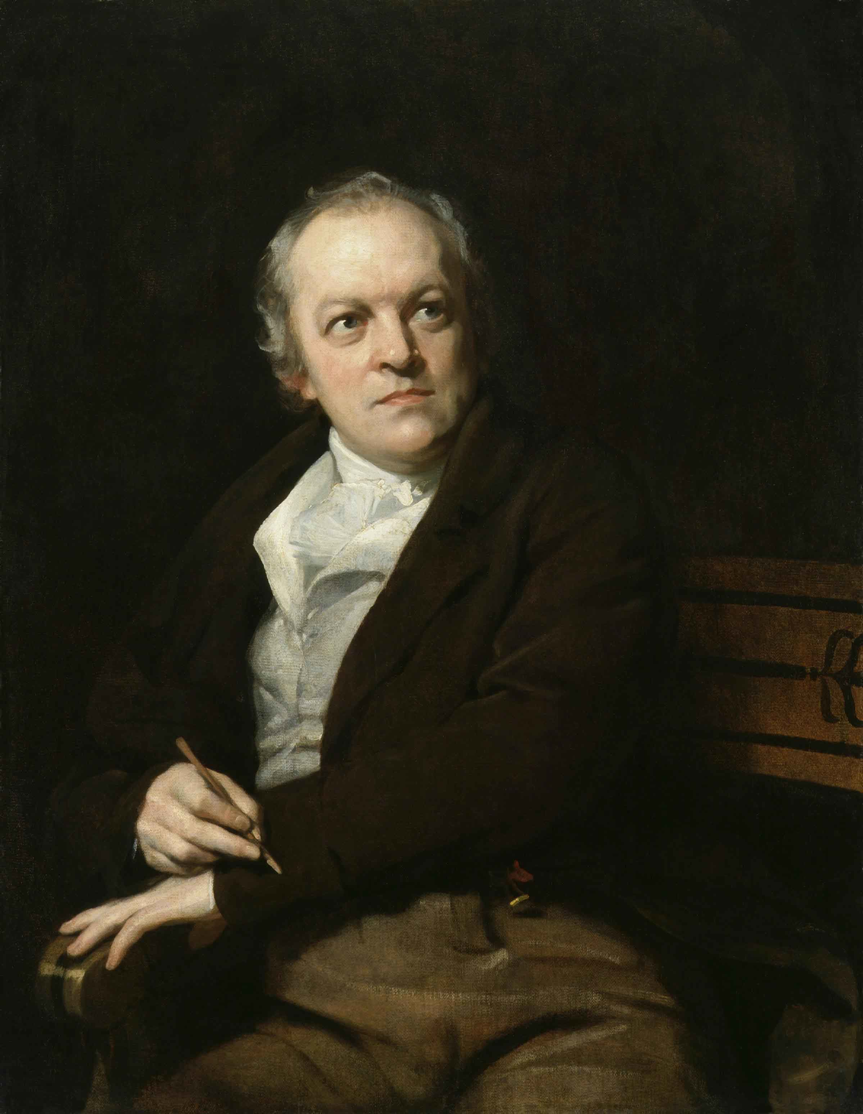William Blake słynne cytaty
Źródło: Boski wizerunek, przeł. Jerzy Pietrkiewicz
Źródło: Nie próbuj mówić o miłości
Tiger, tiger, burning bright
In the forests of the night,
What immortal hand or eye
Could frame thy fearful symmetry? (ang.)
Inna wersja:
Tygrysie, błysku w gąszczach mroku,
Jakiemuż nieziemskiemu oku
Przyśniło się, że noc rozświetli
Skupiona groza twej symetrii? (tłum. Stanisław Barańczak)
Źródło: Tygrys, przeł. Jerzy Pietrkiewicz
William Blake Cytaty o myślach
I will not cease from mental fight,
Nor shall my sword sleep in my hand,
Till we have built Jerusalem
In England’s green and pleasant land. (ang.)
Przekład Macieja Frońskiego:
W bitewnym niech nie padnę szale
I niech w mym ręku miecz nie zaśnie,
Aż zbudujemy Jeruzalem
Tu, na angielskiej ziemi właśnie.
Źródło: hymn Jerusalem ze wstępu poematu Milton: A Poem (1804), tłum. Jerzy Pietrkiewicz.
William Blake cytaty
od tego fragmentu została zaczerpnięta nazwa zespołu The Doors.
Źródło: Marek Gaszyński, Czy wiesz? Zagadki. Muzyka rozrywkowa, Warszawa 1996, wyd. Alfa, s. 20.
To see a World in a Grain of Sand
And A Heaven in a Wild Flower,
Hold Infinity in the palm of your hand
And Eternity in an Hour. (ang.)
Wróżby niewinności
„Nadmiar smutku się śmieje. Nadmiar radości płacze.”
Zaślubiny Nieba i Piekła
Every morn and every night
Some are born to sweet delight.
Some are born to sweet delight,
Some are born to endless night. (ang.)
Wróżby niewinności
William Blake: Cytaty po angielsku
“The eagle never lost so much time as when he submitted to learn of the crow.”
Źródło: 1790s, The Marriage of Heaven and Hell (1790–1793), Proverbs of Hell, Line 39
“O Rose thou art sick.
The invisible worm,
That flies in the night
In the howling storm:”
The Sick Rose, plate 39.
Źródło: Songs of Experience (1794)
Kontekst: p>O Rose thou art sick.
The invisible worm,
That flies in the night
In the howling storm:Has found out thy bed
Of crimson joy:
And his dark secret love
Does thy life destroy.</p
“I myself do nothing. The Holy Spirit accomplishes all through me.”
Attributed to William Blake by Michael J. Gelb in Creativity on Demand: How to Ignite and Sustain the Fire of Genius https://books.google.nl/books?id=lCsNBQAAQBAJ&printsec=frontcover&dq=%22Creativity+on+Demand:+How+to+Ignite+and+Sustain+the+Fire+of+Genius%22&hl=nl&sa=X&ved=0ahUKEwjolMyvm6TLAhVDLQ8KHechDoIQ6AEIHzAA#v=onepage&q=%22I%20myself%20do%20nothing.%20The%20Holy%20Spirit%20accomplishes%20all%20through%20me%22&f=false (2014), but cannot be retrieved in The Marriage of Heaven and Hell, xxii.
Attributed
“Without contraries there is no progression.”
Źródło: The Marriage of Heaven and Hell
St. 5
1790s, The Tyger (1794)
Źródło: Songs of Innocence and of Experience
1790s, Letter to Revd. Dr. Trusler (1799)
“Dip him in the river who loves water.”
Źródło: The Marriage of Heaven and Hell
“He who replies to words of doubt
doth put the light of knowledge out.”
Źródło: Auguries of Innocence
“The weak in courage is strong in cunning.”
Źródło: 1790s, The Marriage of Heaven and Hell (1790–1793), Proverbs of Hell, Line 49
“thus men forgot that all deities reside in the human breast.”
Źródło: The Marriage of Heaven and Hell (1790–1793), Proverbs of Hell, Line 71
Kontekst: The ancient poets animated all objects with Gods or Geniuses, calling them by the names and adorning them with the properties of woods, rivers, mountains, lakes, cities, nations, and whatever their enlarged & numerous senses could perceive. And particularly they studied the genius of each city & country, placing it under its mental deity; Till a system was formed, which some took advantage of, & enslav'd the vulgar by attempting to realize or abstract the mental deities from their objects: thus began priesthood; Choosing forms of worship from poetic tales. And at length they pronounc'd that the Gods had order'd such things. Thus men forgot that all deities reside in the human breast.
“The busy bee has no time for sorrow.”
Źródło: 1790s, The Marriage of Heaven and Hell (1790–1793), Proverbs of Hell, Line 11
“When nations grow old, the Arts grow cold,
And Commerce settles on every tree.”
On Art And Artists (1800) 'On the Foundation of the Royal Academy'
“The thankful receiver bears a plentiful harvest.”
Źródło: The Marriage of Heaven and Hell
America, A Prophecy.
1800s
Źródło: America: A Prophecy/Europe: A Prophecy: Facsimile Reproductions of Two Illuminated Books
